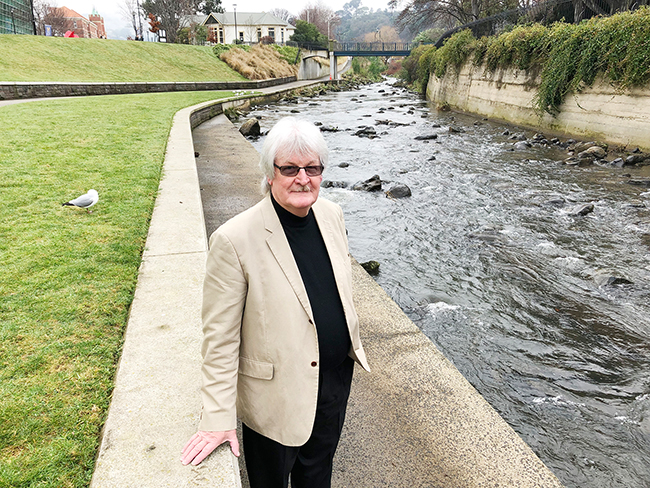Thursday 25 July 2019 12:51pm

Professor Frank Griffin.
Developing future leaders in agriculture who drive the industry forward is the kaupapa of a new major available within Applied Sciences at the University of Otago.
Agricultural Innovation is designed to focus students’ learning on the major issues and innovative solutions required to support the future of New Zealand’s agricultural industry.
The new programme arrives at an important time for addressing agricultural challenges by developing aspirational links to the industry says the Director of Otago’s Ag@Otago Research Theme, Emeritus Professor Frank Griffin.
He says agricultural products remain a major component of New Zealand’s economic platform, where more than 80% of food produced is exported.
“New Zealand’s fertile landmass and temperate climate have made us custodians of the world’s two biggest farms; the North and South Islands,” Professor Griffin says.
“The Agriculture Minister has recently stated farmers need to operate at a higher level if they wish to retain their social licence to farm, so now is the time where academic leadership and applied research can impact positively on rural New Zealand.”
Agricultural Innovation’s vision of supporting alternative farm systems that change the economic focus from volume to value, placing increased emphasis on sustainability, environmental security, and climate stabilisation, coincide with the Government’s recent announcement of a new vision for the sector.
The new programme will draw on Otago’s academic and research expertise across a diverse range of agriculture-related subjects such as environmental, ecology, technology, business, marketing, bioinformatics, and genetics.
The concept of Agricultural Innovation became apparent following the establishment of Ag@Otago involving more than 60 Otago researchers with active interests in agriculture.
Professor Griffin says Ag@Otago worked closely with farmers to understand their perspectives and respond to their concerns and challenges during the first two years of the research theme.
“Progressive farmers are telling us that peak production is not compatible with sustainability and there’s a real appetite among them to find new approaches,” he says.
“The emphasis now is to develop highly diverse, eco-friendly biological farming systems and a switch to high value branded outputs, from a historical devotion to produce cheap commodity-based foods.”
The kaupapa of Agricultural Innovation is to support such changes with robust science and technology, which require a multidisciplinary approach across social, commercial, and environmental aspects.
Professor Griffin’s vision for New Zealand would be a country with highly diverse, mixed farming, horticulture, and forestry, where the value of the industry links many complementary areas.
“Sectors like agri-tourism for example could be potential sources of value as tourists spend a lot of time looking over fences at our agricultural enterprises, as they traverse New Zealand,” he says.
“If we get it right, then our agricultural industry can act as a barometer for the health and wellbeing of the planet, and if we are smart we can create a situation where the world looks to us as a leader in ecological management and food production.”
Enrolments will open in August for the first Agricultural Innovation programme level one paper available in semester two of 2020, as an overview of the environmental, economic, social, and technological aspects of agriculture from a global perspective.
For more information, contact:
Professor Frank Griffin
Director Ag@Otago Research Theme
University of Otago
Email frank.griffin@otagoinnovation.com
Electronic addresses (including email accounts, instant messaging services, or telephone accounts) published on this page are for the sole purpose of contact with the individuals concerned, in their capacity as officers, employees or students of the University of Otago, or their respective organisation. Publication of any such electronic address is not to be taken as consent to receive unsolicited commercial electronic messages by the address holder.
